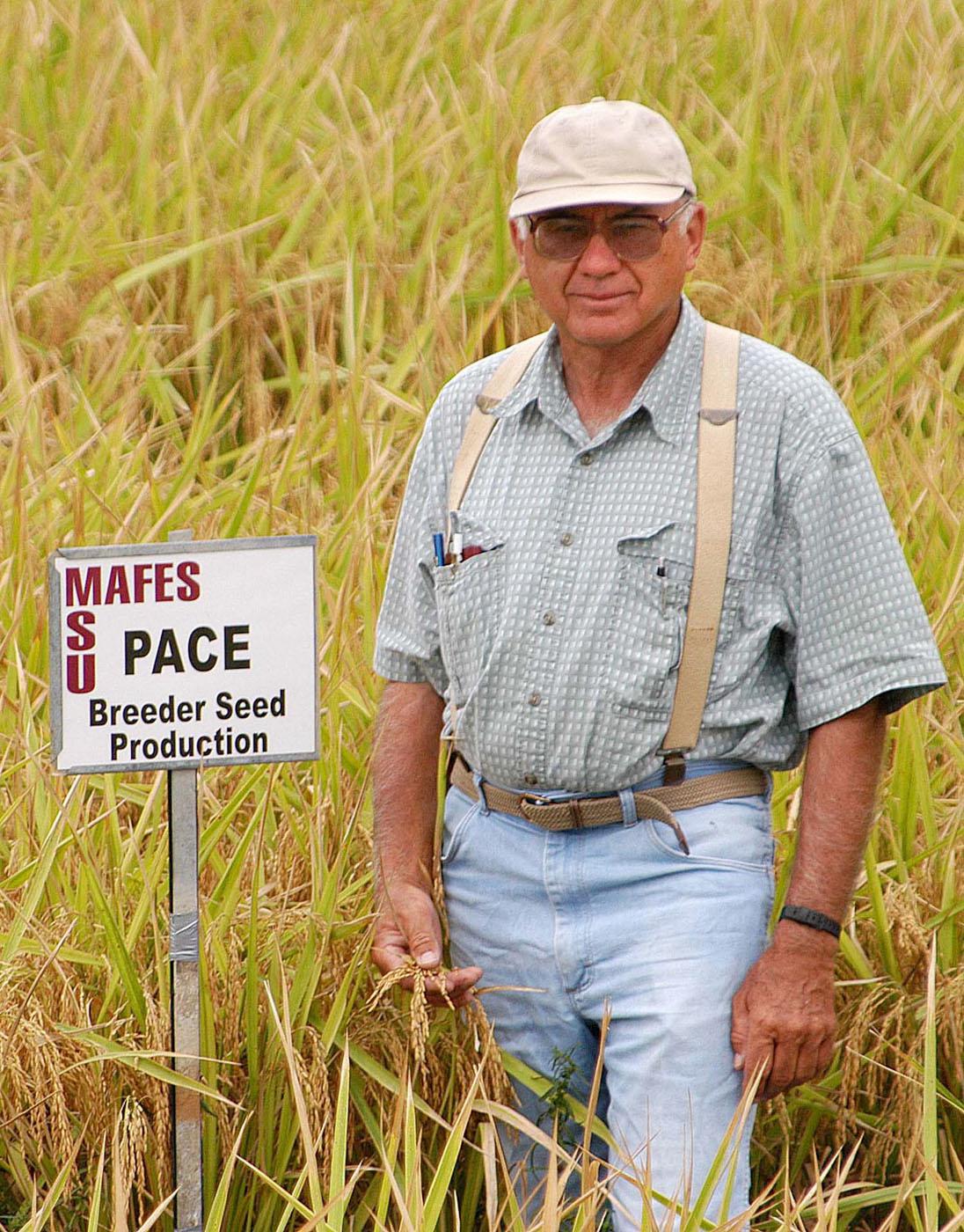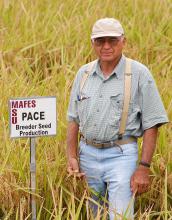Information Possibly Outdated
The information presented on this page was originally released on July 5, 2012. It may not be outdated, but please search our site for more current information. If you plan to quote or reference this information in a publication, please check with the Extension specialist or author before proceeding.
Delta rice researcher retires from MSU
MISSISSIPPI STATE – A long-time rice breeder is turning his rubber boots over to the next generation of researchers.
Dwight Kanter, a research professor with the Mississippi Agricultural and Forestry Experiment Station, retired on July 1. Tim Walker assumed Kanter’s duties.
Kanter moved from Nebraska to Mississippi State University’s Delta Research and Extension Center in 1988 to continue the efforts begun by the station’s early breeders. He spent 14 years breeding rice in Vietnam, the Philippines and Bangladesh while employed by the International Rice Research Institute located at Los Banos, Philippines.
“We have been fortunate to have Dr. Kanter leading the rice breeding program for the past 24 years. Dr. Kanter’s contributions are immeasurable,” said Steve Martin, head of the DREC. “Fortunately, Dr. Tim Walker began working in the breeding program with Dr. Kanter three years ago and is well prepared to continue to advance the program.”
Kanter developed six varieties of rice: CL162, Rex, Litton, Pace and Priscilla. Litton, Pace, and Priscilla were all named after small Mississippi Delta towns.
"A lot of small towns are fading away or disappearing. I thought it would be good if we could in some way keep alive the names of these small Delta towns,” Kanter said.
Developing a rice variety to the point of having enough seed for commercial production can take 10 to 12 years. Kanter maintained about 100 advanced breeding lines and thousands of early generation progeny, including both conventional and Clearfield seed materials.
Kanter’s successor, Walker, has worked in Stoneville since 2002 and holds a doctoral degree in agronomy from MSU. He said he plans to continue on the foundation that was started by previous MSU rice breeders, including Ben Jackson and Kanter.
“Many of our breeding objectives will remain the same. We will release varieties that fit our climate and markets, have improved yield potential and are tolerant to costly diseases,” Walker said.
Walker helped Kanter develop and release two rice varieties, Rex and CL162. In addition to his breeding responsibilities, he is researching ways to optimize plant nutrition and agronomic practices.
Recently, Walker was named Rice Researcher of the Year at the National Conservation Systems Cotton and Rice Conference. In May he was named to the Leadership for the 21st Century, or Lead21 program, for land-grant institutions.
Writer: Dr. Rebekah Ray
Delta Research & Extension Center






